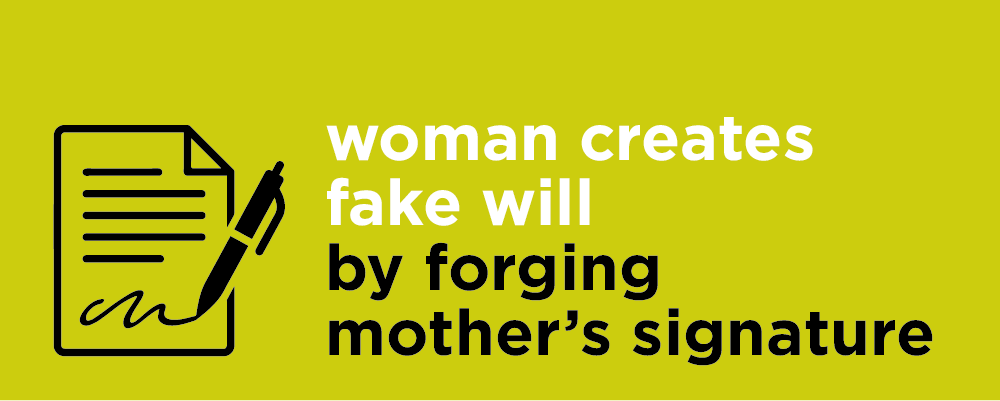- Basildon 01268244144
- Chelmsford 01245453800
- Colchester 01206217300
- London 020 4586 1280

The Nottingham Crown Court has announced recently that a deceased’s daughter, Susan Johnson, has pleaded guilty for fraud.
After Susan’s mother passed away in 2016, Susan forged her mother’s will by imitating her mother’s signature and two witnesses’ signatures on the will with the intention that Susan would be the main beneficiary of her mother’s estate.
Luckily, Susan’s siblings challenged the validity of their mother’s will and instructed a handwriting expert to help convince the Court that Susan had fraudulently made the will, therefore making it not valid.
The Court found the will to be fraudulently made and the will was therefore deemed invalid. Fortunately for this family the deceased’s will made in 2014 was reverted to and Susan’s siblings inherited under this will.
The Wills Act 1837 sets out that there is a strict signing procedure which must be followed to ensure that a will is correctly executed and is valid.
Section 9 of the Wills Act states that no will shall be valid unless:-
- It is in writing, signed by the testator, or by some other person in his presence and by his direction; and
- It appears that the testator intended by his signature to give effect to the will; and
- The signature is made or acknowledged by the testator in the presence of two or more witnesses present at the same time; and
- Each witness either attests and signs the will or acknowledges his signature, in the presence of the testator (but not necessarily in the presence of any other witness)
It is therefore important that the rules in the Wills Act are followed to ensure that a will is valid and that your loved ones are provided for according to your own wishes set out in your will.
Birkett Long follows the strict signing procedure to ensure that the formalities under Section 9 of the Wills Act are complied with. It is standard practice that once a client’s will has been signed that we hold onto the original in our vault for safekeeping. The reason why we keep hold of clients’ original wills is to ensure that a person does not accidently lose or destroy a will and it keeps it safe from people not acting in your best interests.
In the above case, had the 2014 will not been executed, then the rules of intestacy would have applied. This would have meant that the deceased’s children (including Susan) would have inherited her estate in equal shares and it was clear that this was not the intention of the deceased.
It is therefore important to have an up-to-date valid will which clearly sets out your wishes on how you would like your estate to be distributed on your passing.
If you have any concerns that an informally written will is not valid, or if you would like to make a will, then please contact our wills, trusts and probate experts for legal advice. I am based in our Colchester office and can be contacted on 01206 217609 or leah.woodnott@birkettlong.co.uk.



Comments